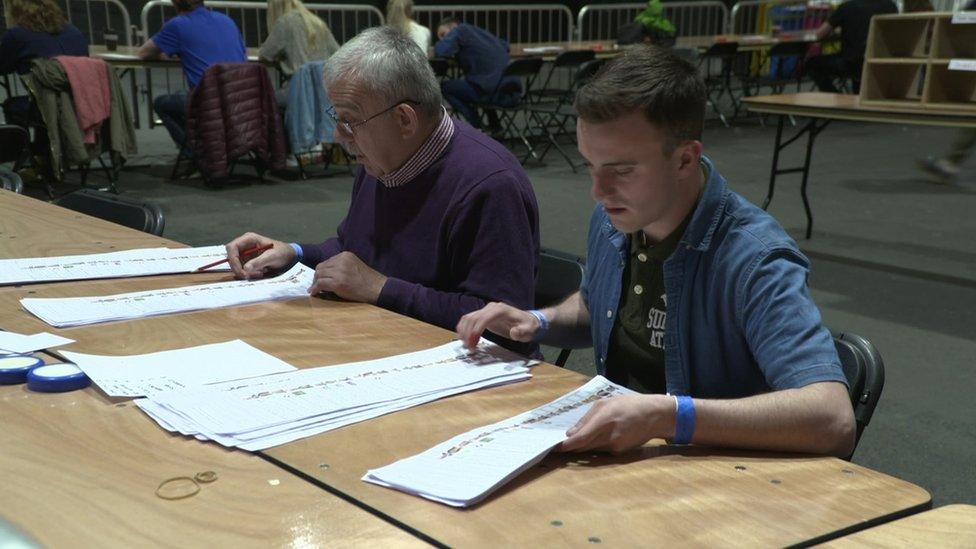European elections 2019: Ireland South recount 'could take up to 28 days'
- Published

Counting in the Republic of Ireland began on Sunday
A full recount of Irish European Parliament constituency Ireland South is to begin on Tuesday.
The move follows a recheck of votes for the fifth and last seat.
It saw Sinn F├®in's Liadh N├¡ Riada just over 300 votes behind the Greens' Senator, Grace O'Sullivan.
The returning officer at the count in Cork, Martin Harvey, said it could take up to 28 working days and cost more than a Ôé¼1m (┬ú883,180) before the result is known.
He said it may be difficult to get the necessary staff to carry out the recount.
Whoever gets the fifth seat will not become an MEP until if and when the UK leaves the European Union.
Liadh N├¡ Riada ran as Sinn F├®in's MEP candidate for the Ireland South constituency
Sinn F├®in said the recount is justified because the gap between the two candidates is 0.04% of the votes cast.
The Green Party said it is disappointed that there will be a full recount, but understands why.
Two of the five seats had been filled.
The former president of the GAA and an outgoing MEP, Sean Kelly, was returned for Fine Gael with Fianna Fáil's Billy Kelleher taking the second seat.
The independent left wing candidate, Mick Wallace, and Fine Gael's outgoing MEP, Deirdre Clune, were set to take the third and fourth seats.
The recount means that it could be mid-July before all the members of the European Parliament are known.
On Wednesday night, counting in the Ireland Midlands-Northwest constituency ended with Fine Gael's Mairead McGuinness and Maria Walsh taking seats along with the independent left-winger Luke 'Ming' Flanagan ahead of Sinn F├®in's Matt Carthy.
'Big questions'
Speaking on RTE radio, Mr Carthy said the party's disappointing showing in the European and local elections means there are big questions for Sinn F├®in to answer.
He added that it is clear that people who previously voted for Sinn F├®in either did not vote for the party this time or did not bother to turn out to vote.
The media has, he said, magnified a number of localised disputes including allegations of a bullying culture in the party by former members which may have caused some problems.
And many people, he added, are frustrated by the failure of the Northern Ireland institutions to be re-established.
- Published28 May 2019
- Published28 May 2019